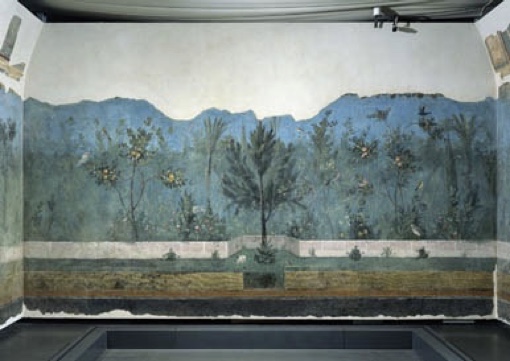Catching up with a Swansea Alum: Dr Victoria Austen (with Ian Goh)
This post is part of a new occasional series of chats with alumni/ae of our degree programmes involving Ancient World subjects.
Last week I (Ian) had the delightful opportunity to chat with a Swansea alumna, Dr Victoria Austen. Victoria did a BA in Classical Civilisation and followed it up with a Master’s and PhD at King’s College London on garden spaces in the Roman empire. By the time she finished her PhD in 2019, Victoria was living in Canada where she has been teaching at the University of Winnipeg, a large public university. Soon she’s going to Carleton College in Minnesota, where she has been appointed a postdoctoral fellow, and can write up her PhD into a book, for which she already has a contract!
Why did Victoria choose Swansea for her degree? Well, in part it was because she was a competitive swimmer, and in the end she captained the varsity swim team—and since the Wales National Pool is on campus, Swansea was a natural choice. But it was also because Swansea is very much a beautiful campus university, and in her words: ‘you could always ask for help, you got to know the lecturers really well; there was a sense of a “class”, a group all living close by’. And several of the lecturers from her time are still in the department!
What kind of routine did Victoria keep? Elite sport means training early in the morning, so at 7:15am she would be the first into the Singleton campus library, on the mezzanine level because back then laptops were rarer, but also from that vantage point you could assess the state of the coffee queue at the entrance on the ground floor! And she could save her best friend a seat at the neighbouring computer ….
What advice does she have for our current undergraduates? Referring to the Egyptology module she took in first year and the option of starting languages (she’d had Latin to GCSE but says she forgot it by the time she came to Swansea), Victoria recommends: ‘make sure you embrace the opportunities provided by the university with its resources while you’re there! Don’t take for granted the relationships you’re going to build with your peers and the lecturers. Get stuck in and involved!’
Reminiscing about the modules she took, Victoria had a good word for a methodological course which we still teach every year, ‘Reading Classical Civilisation’, in which different lecturers come in to talk about their research and practise the art of close reading texts in translation, giving students an understanding of how to approach literature critically. This skills training spurred her to carry on with Latin learning and has proved influential for her day job in communicating classics, both in encouraging students to come up with their own ideas while going back to foundational texts.
We ended up talking shop a bit about pedagogical practice and the demands of teaching during the pandemic. One exciting development we’ve all felt has been in the varieties of ways we assess students. As well as one task which involved interviewing one of a choice of minor characters in Homer’s Iliad for their POV, Victoria recently set her students a Wikipedia editing assignment, and you can read about that here.
All of us at Swansea wish Victoria every continuing success with her burgeoning academic career! If you want to check out her scholarly work, she’s just published an article in the journal Syllecta Classica on the preface to the poem about gardens in the farming manual from Neronian times by Columella. Or, if you prefer, you can try two podcasts she was featured on recently, here and here. And she tweets @Vicky_Austen!



